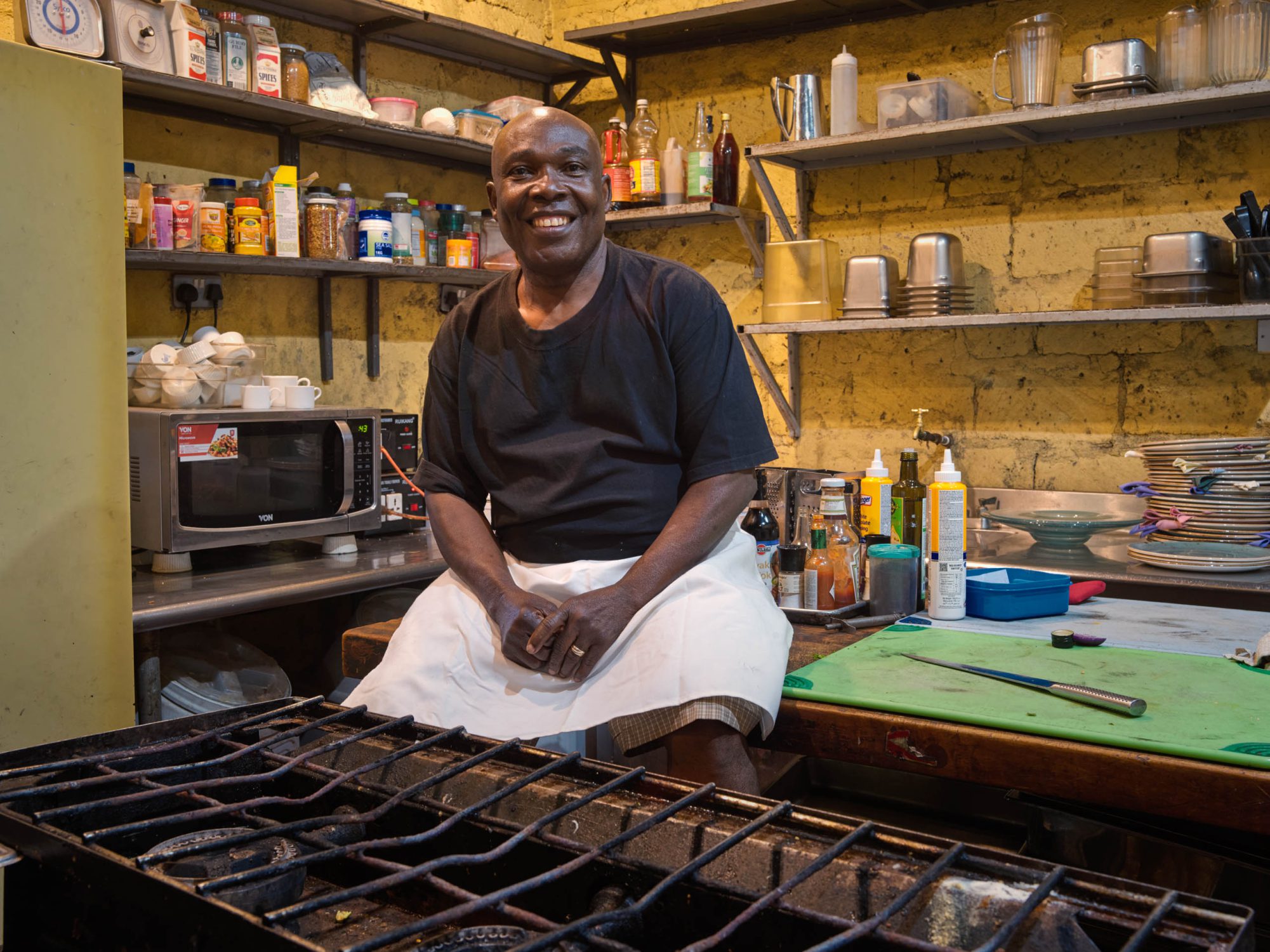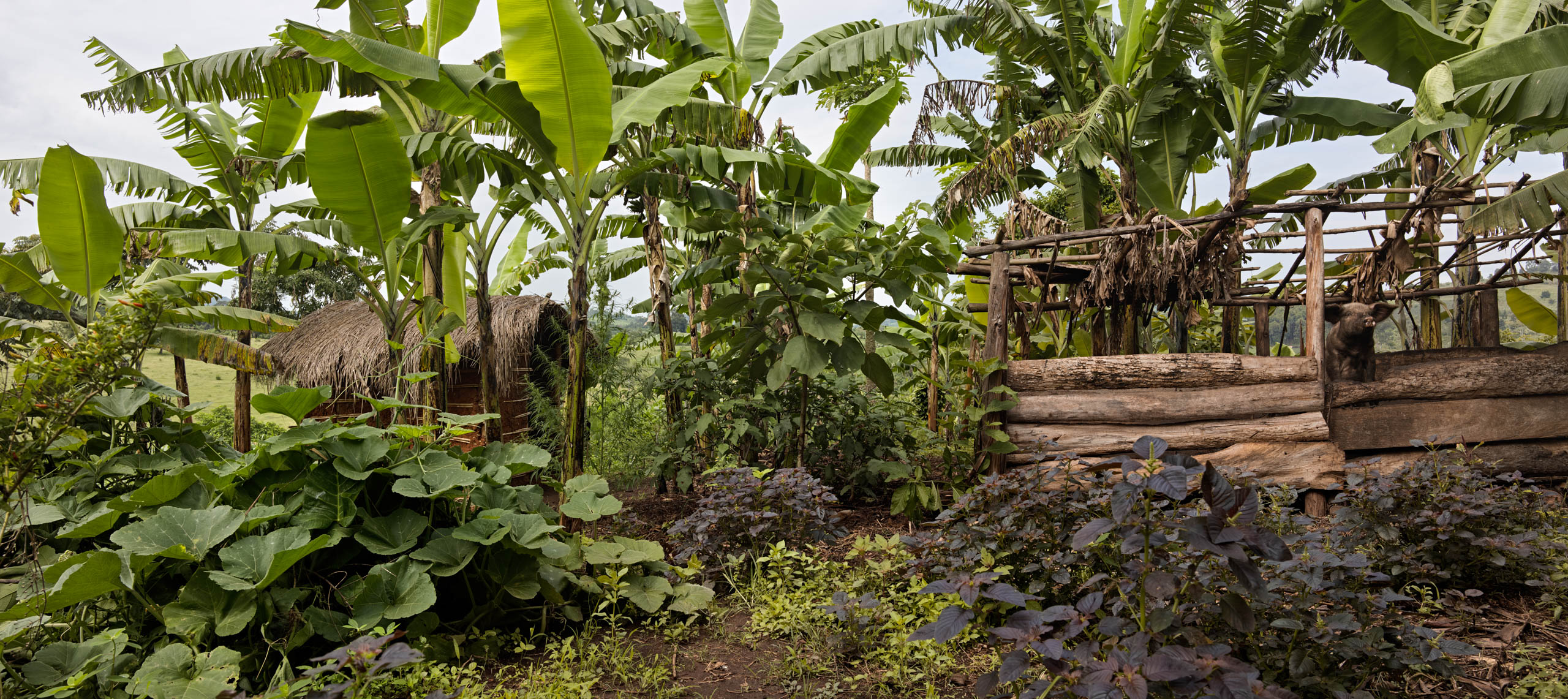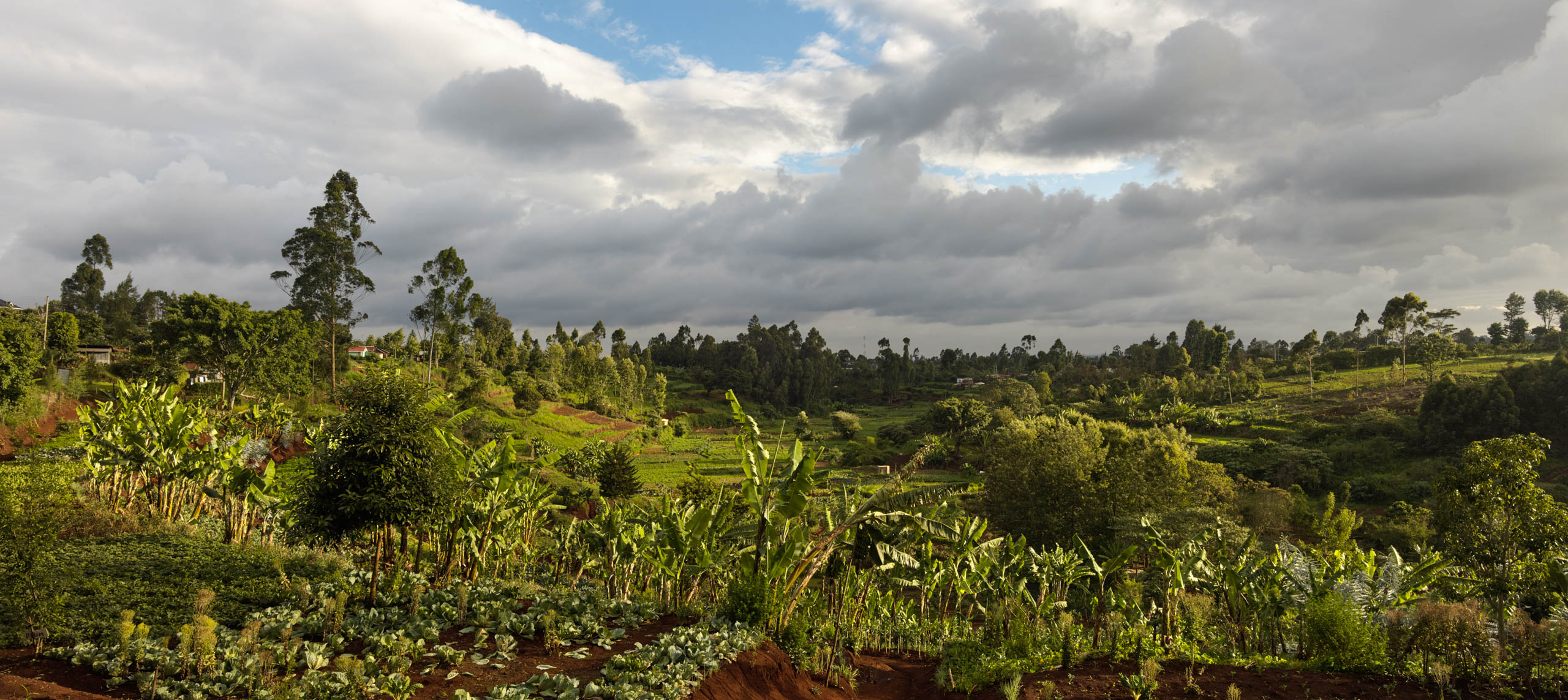
Mlango Farm
Mlango Farm is the story of Els and Kamande. They met in Amsterdam, where Els had a good job at the University of Amsterdam. Kamande comes from Nairobi; they are city people. They’d shared a vegetable garden in Amsterdam, but that was more for barbecuing, or for drinking white wine with friends: ‘I don’t believe we ever harvested so much as a bunch of carrots there.’
Kamande started to long for his parents’ land, eager to do something there, something for and with the local community. Their eight-hectare farm was fertile and close to Nairobi. With his background, his instinct for hospitality, his knowledge of the country and the people, combined with Els’s work experience in international diplomatic, environmental and educational institutions, it must surely be possible to start something wonderful.
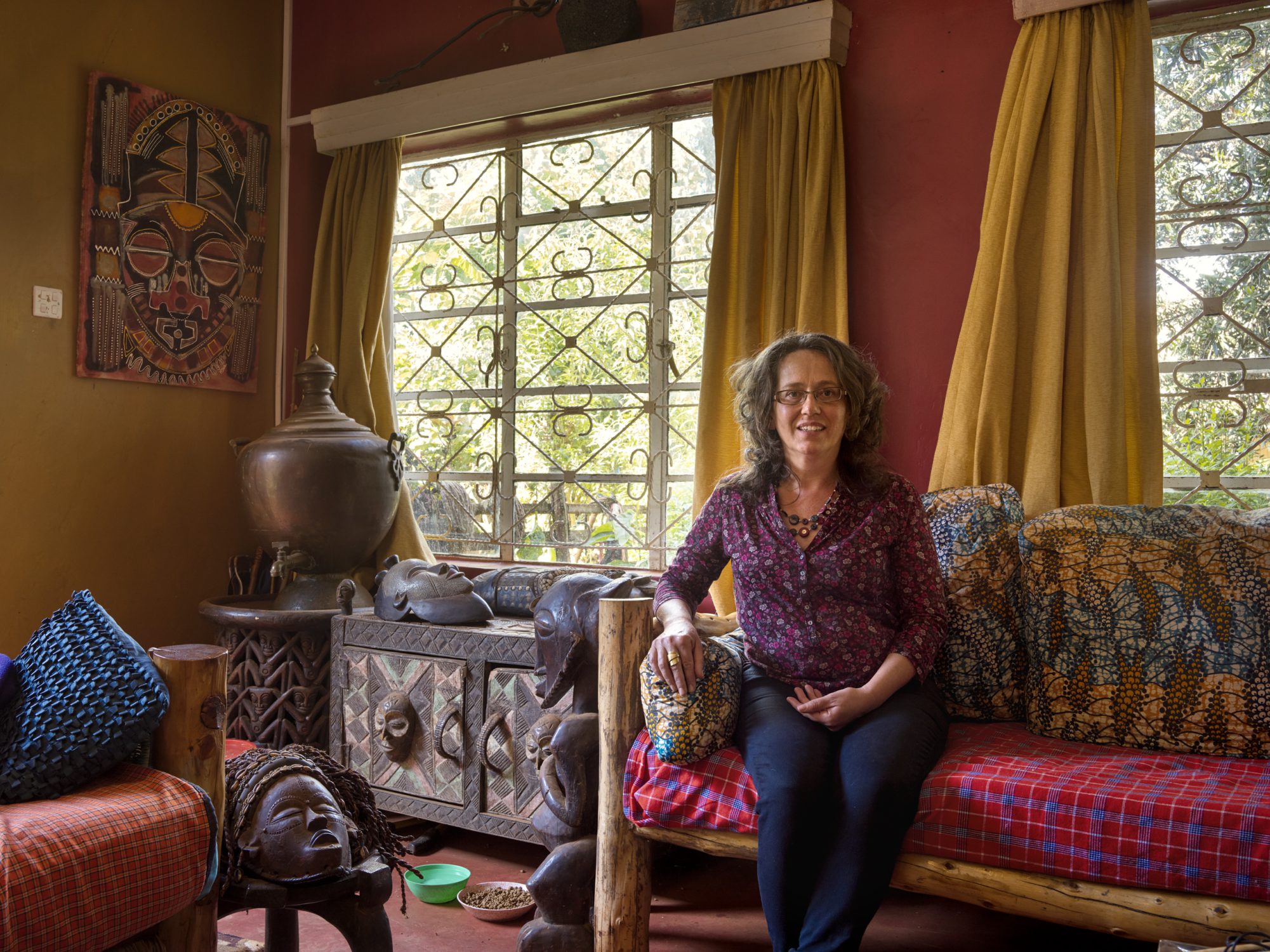
A house, empty land and nothing else
In 2007 Els and Kamande arrived in Kenya with two suitcases, without a plan, without money, in an empty house on an empty piece of land.
Sitting on the home-made sofa in Kamande’s parents’ house, Els tells the extraordinary story of Mlango Farm. In a house full of African art, we’re given white-bread sandwiches with Calvé peanut butter.
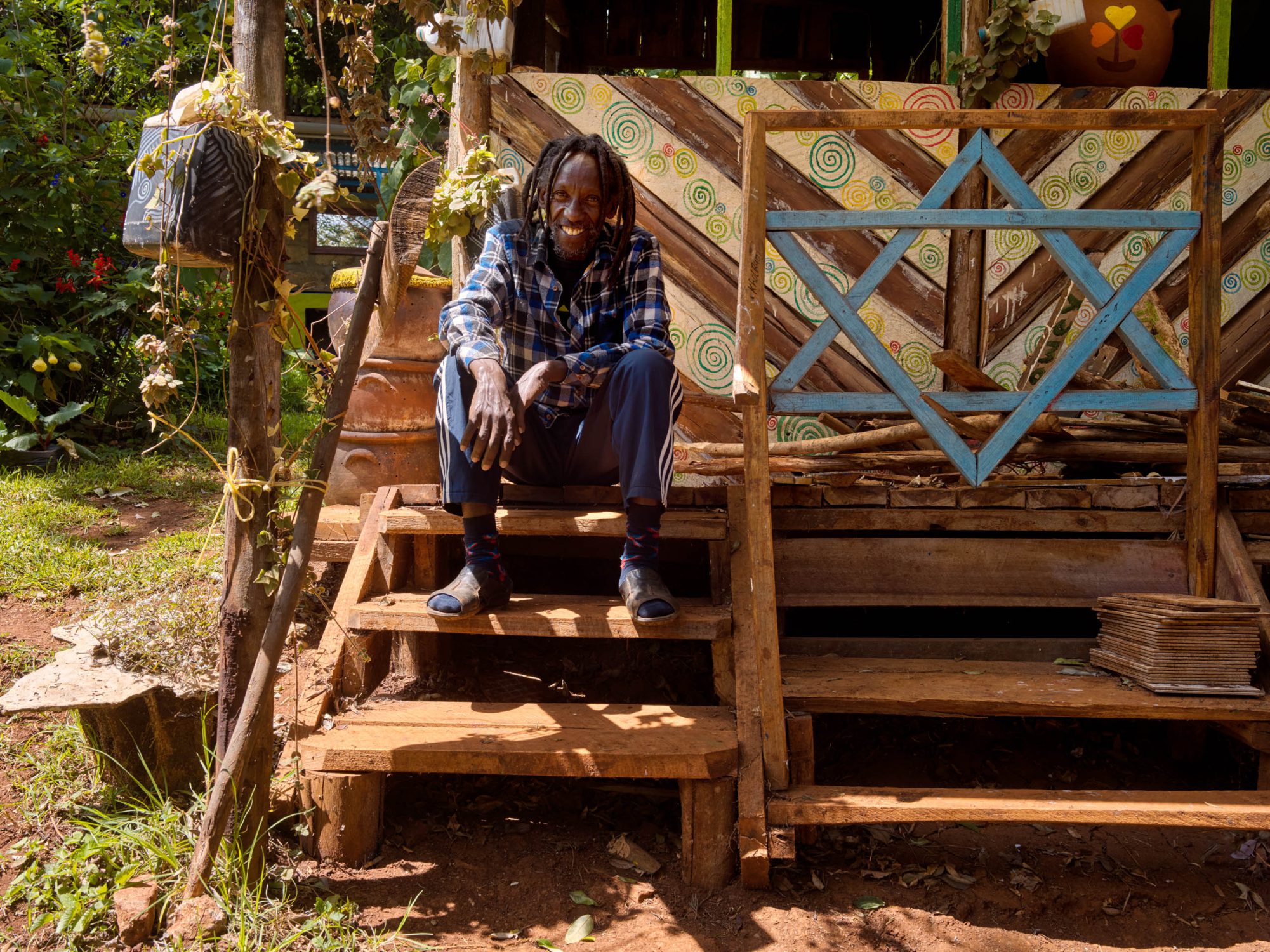
"We just started digging and put some seed in the ground."
Kamande is seen here sitting on the steps of the little house that he built at the spot where his father liked to sit daydreaming after a long day working on the land. It’s also the place where his father now lies buried.
He began with just one worker from the village, first clearing the land, then digging, carving terraces, planting trees, sowing vegetables and making the soil fertile.
Now they grow fifty different kinds of vegetables and fruit, seventy people from the local community work on the farm and they use completely organic methods, with no chemical pesticides or synthetic fertilizers. In 2010 Mlango Farm gained its certificate for organic crop production. It rejects, reduces, recycles and reuses waste as far as possible. Plastic bottles are collected for the making of Ecobricks for construction.
Mlango is a farm and a centre for ecology, training, research and education. It also offers space for an artist in residence and is a great place to visit with a school class, your family or work colleagues.
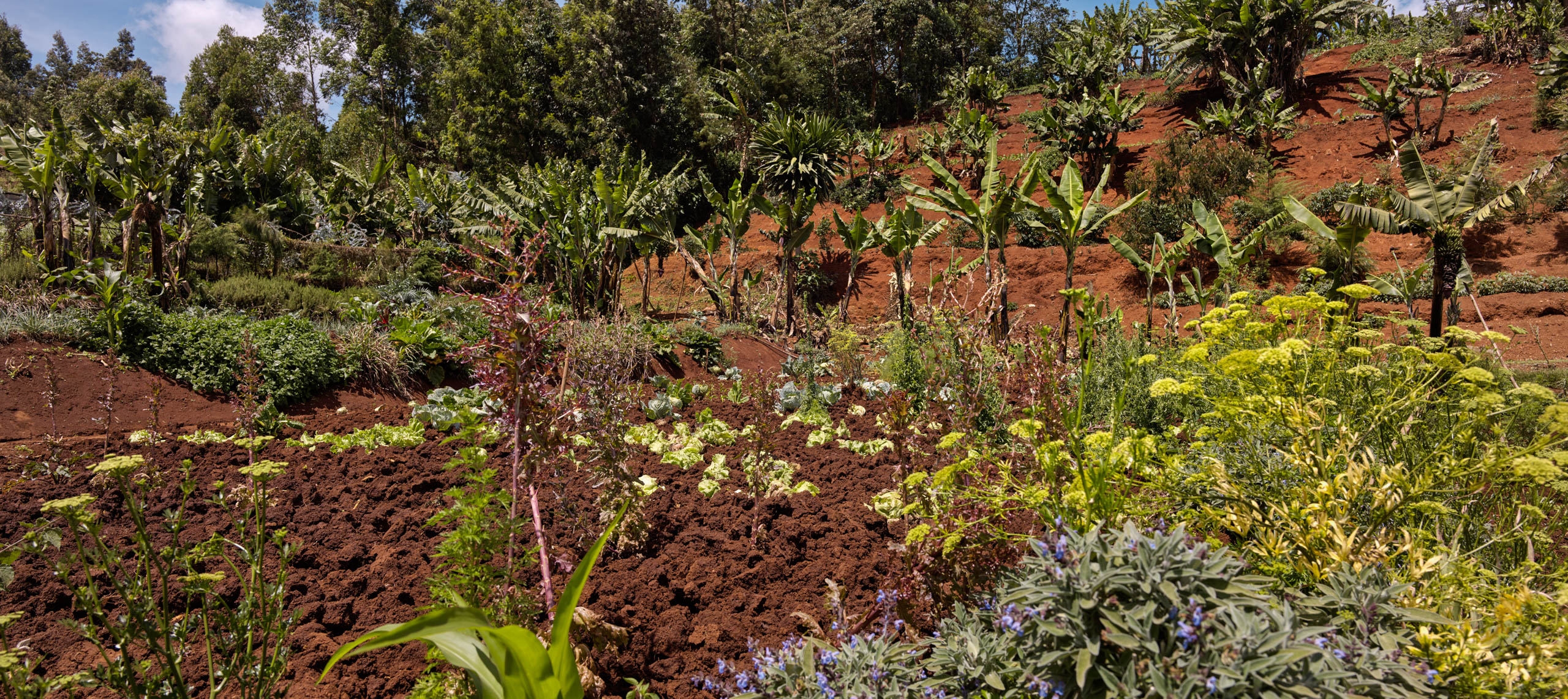
A day at the farm
We arrive in the early morning to take photographs. Els has made a pot of Dutch filter coffee for us and at about eight o’clock the first workers trickle in. It’s a wonderful sight to see people, mostly young, coming along the steep muddy path from the village. They arrive in small groups, a few of them brought on a moped. They spread out across the land for the daily farming routines.
In the courtyard the vegetable baskets are being prepared for transport to Nairobi. They are filled with whatever has been harvested that morning. A group of young women is busy in the big open education centre, getting ready to receive several school classes this morning. Others spread out over ‘the Garden of Eden’ to harvest, hoe, water and weed.

Greengrocer, what shall we eat?
Arrowroot, avocados, baby carrots, bananas (and matoke), beetroot, borage, broccoli, cabbages, cauliflowers, carrots, celery, cherry tomatoes, Chinese cabbage, chioggia, chives, chayote, courgettes, cucumbers, daikon, dhania/coriander, eggplant, fennel, green capsicum, kohlrabi, leeks, lemongrass, lemon verbena, lettuces (12 different varieties), mint, mizuna, nasturtium, New Zealand spinach, pakchoi, parsley, peaches (only in November), radish, red cabbage, rocket, rosemary, sage, savoy cabbage, spinach, spring onions, sukuma, sweet potatoes, Swiss chard, tarragon, tatsoi, tree tomatoes (tamarillo), turnips and white sapote.
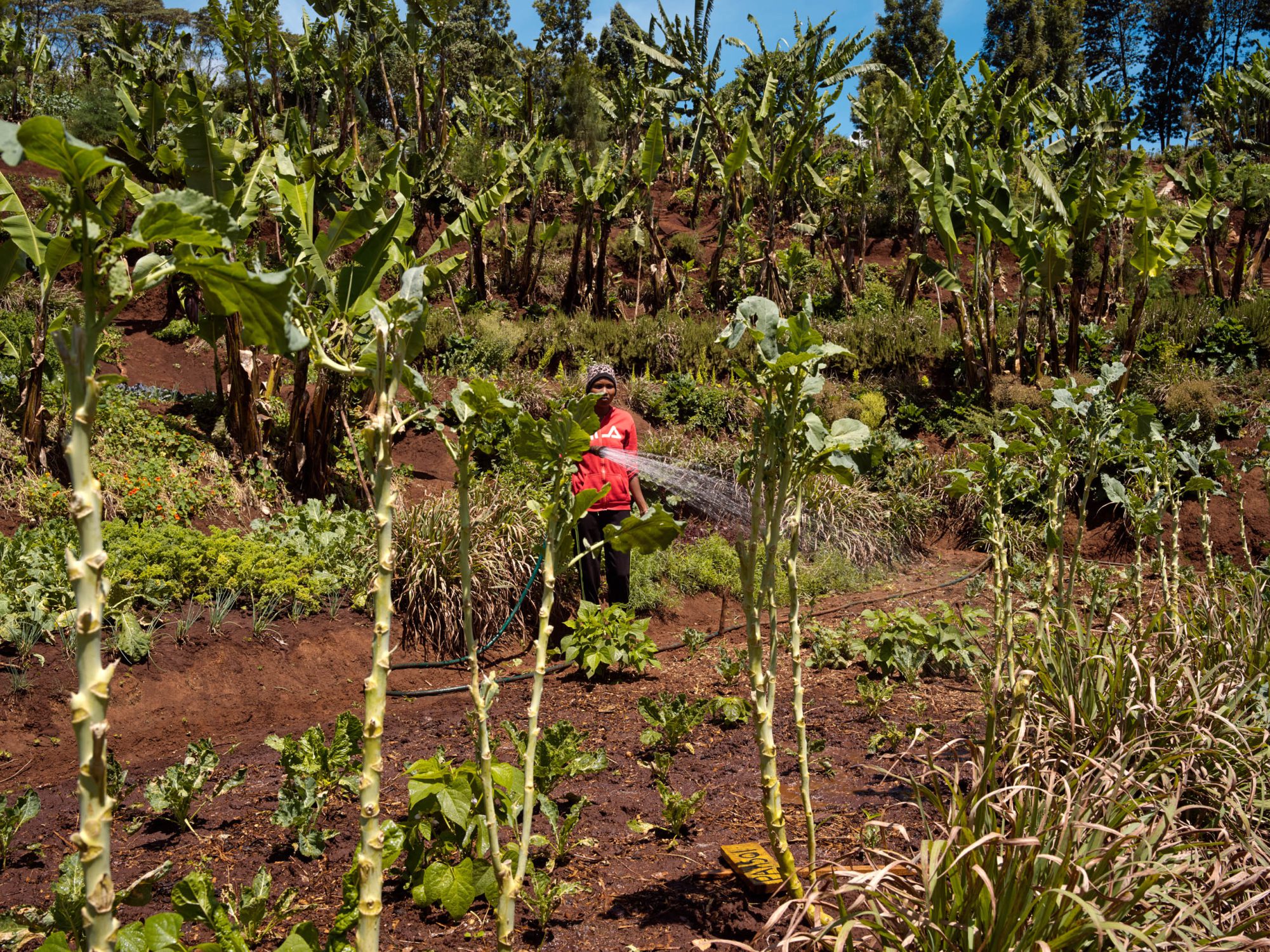
They earn more than just a salary
For the small local community, Mlango Farm is a blessing. Unemployment is high and life for the jobless is without prospects. Of the seventy workers, many have been here since the start of the project and many young people get temporary jobs here after finishing their studies.
Together they form a tight community. For them, Mlango Farm is more than an employer. They are motivated and inspired by the like-mindedness that comes from working together with a shared goal.
Our driver, a ‘city boy’ from Nairobi, has been with us all day and is almost jealous of these young people. He would be happy to exchange his life in hectic Nairobi for a life on a farm like this. As we drive back with him to Nairobi in the evening, with a large basket of fruit and vegetables, and reflect on our day, he says, ‘I have no idea what these people earn but it’s more than a salary.’
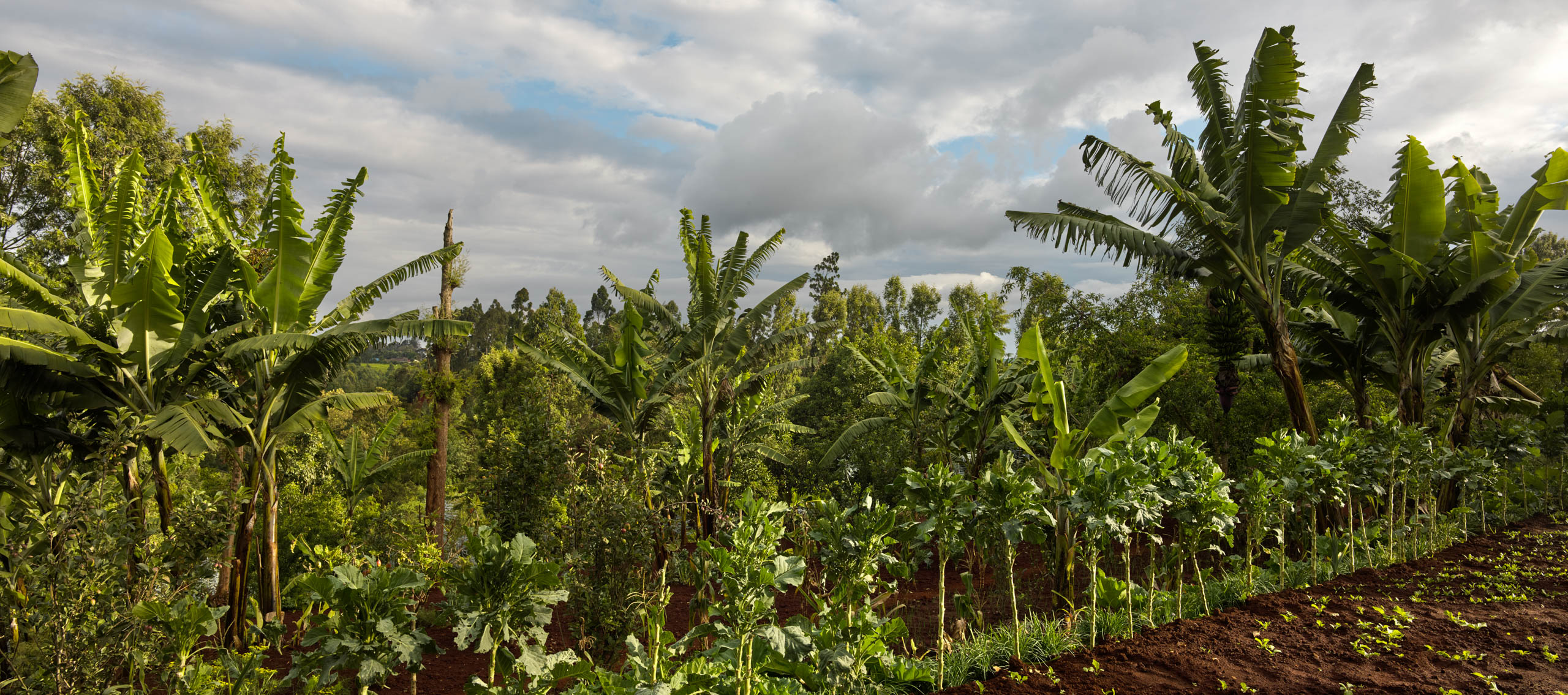
Practicing regenerative agriculture.
‘Is it regenerative agriculture, is it forestry, is it a food forest, is it syntropic farming?
It’s a combination of those things, of nature and culture, farming wisdom and science, soil and soul, heart and mind.’
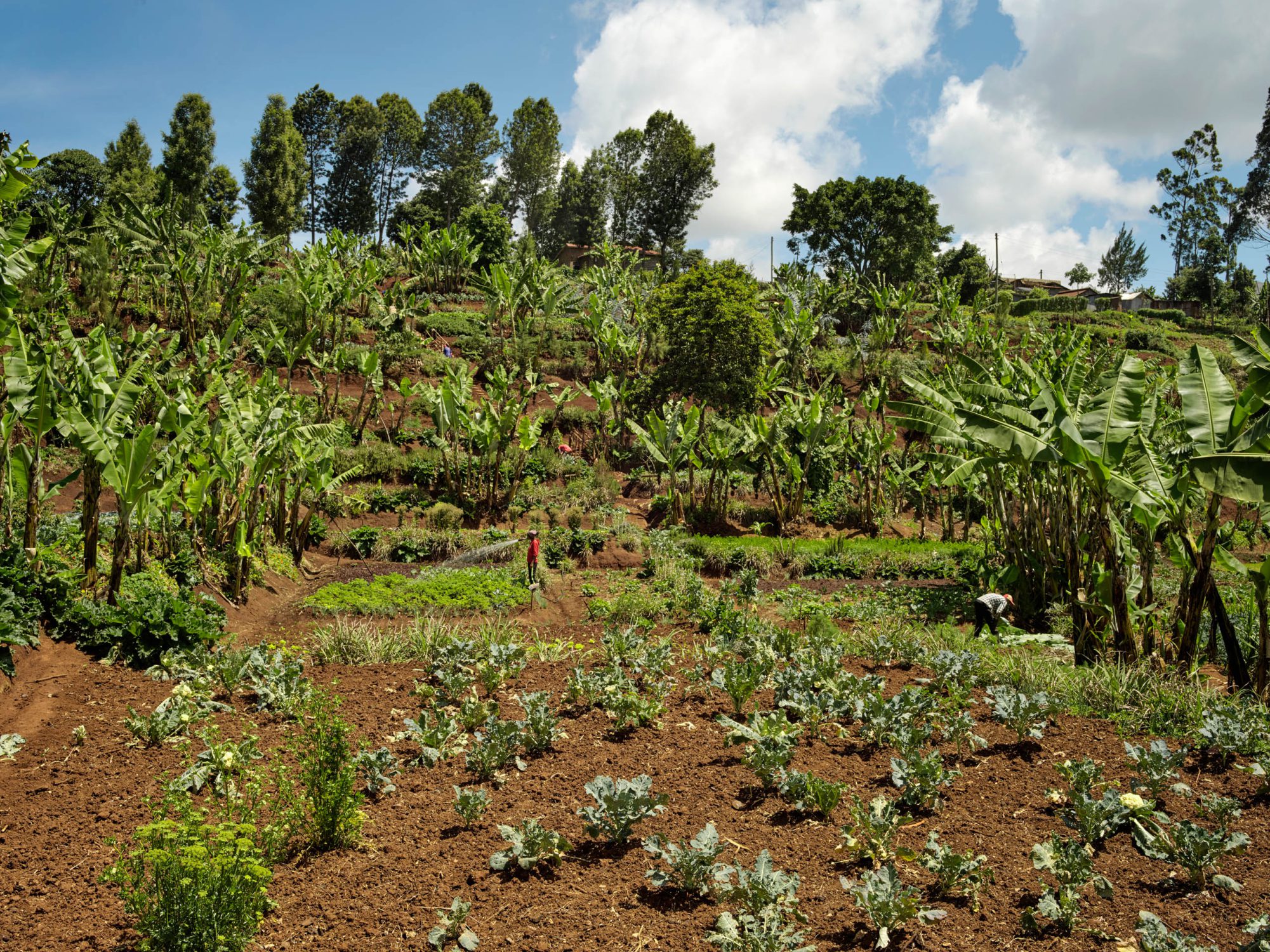
House of Artemisia Kenya
Mlango Farm is taking part in the House of Artemisia Kenya tree-planting programme. La Maison de L’Artemisia is a French humanitarian organization that promotes the use of Artemisia annua (sweet wormwood) and Artemisia afra (African wormwood) as part of the battle against malaria, aiming to help the most vulnerable population groups in the world. The two plants have been used for centuries in Chinese and East African traditional medicine.
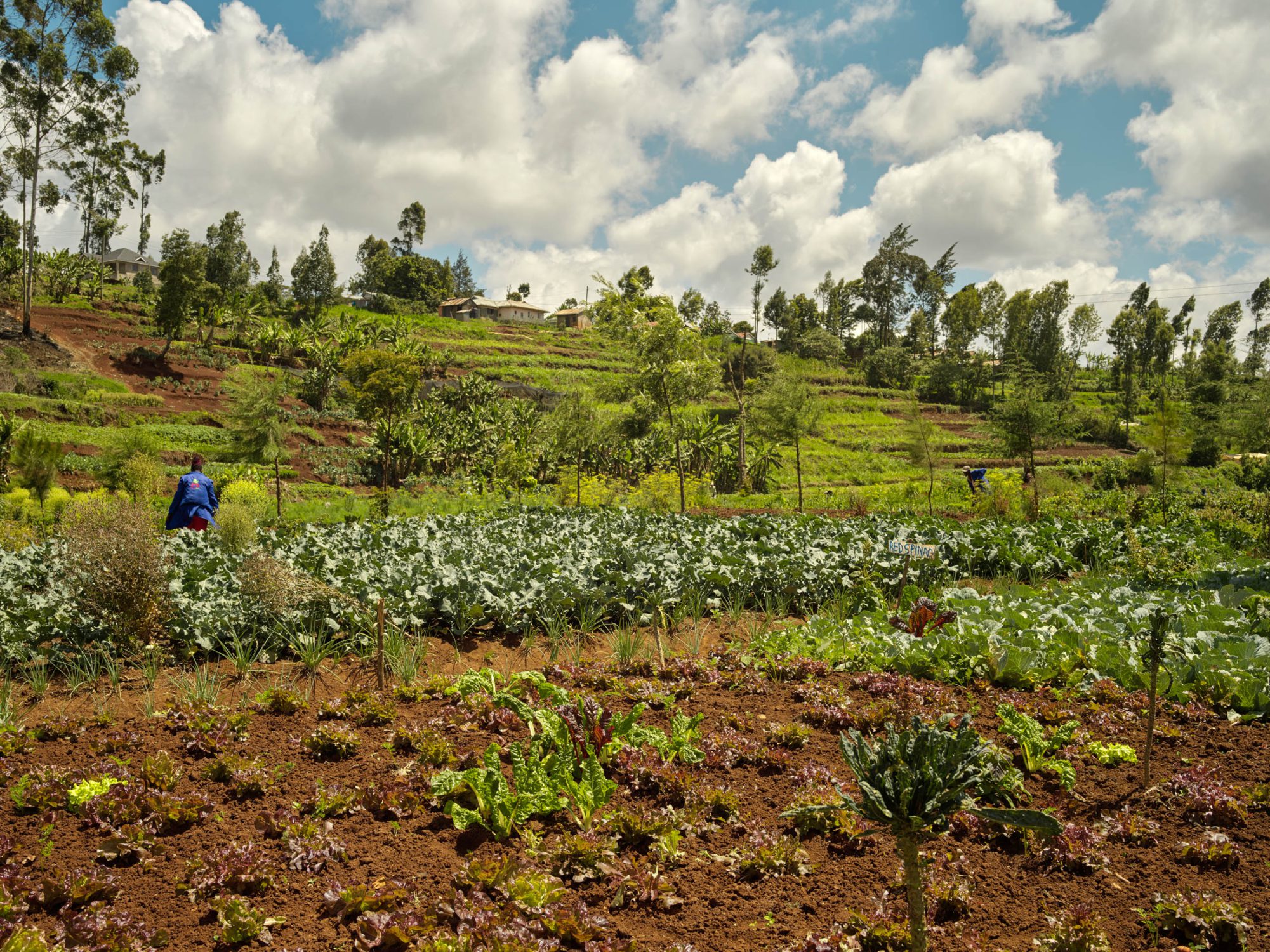
Karibu
Mlango Farm is a great destination for a ‘farm life experience’. Harvest your own vegetables and have them turned into a delicious lunch on the farm. You’ll find Mlango Farm on Limuru Road, Nairobi, Kenya. From Westlands take the ring road from ABC to Kitisuru, turn left at the end, drive through Gachie and you’ll come out on Limuru Road. If you get lost, ask for ‘Sir Kamande’ and everyone will know who you mean.
We have selected another two stories that might inspire you.
